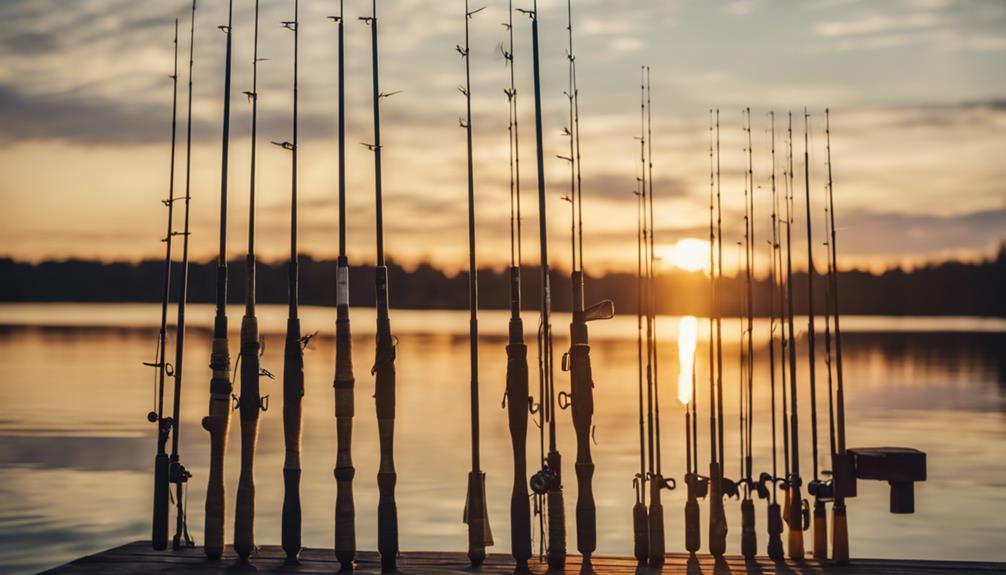Fishing is not just a leisure activity; it’s a fulfilling way to connect with nature and unwind from our busy lives. However, before you pack your tackle box and head to the water, you need to understand the prerequisites of obtaining a fishing license. In this guide, we’ll explore everything you need to know about acquiring your fishing license, ensuring that you comply with local regulations while maximizing your fishing experience.
Understanding the Importance of a Fishing License
When asking, “What do I need to get my fishing license?”, it’s crucial to recognize why a fishing license is necessary. Fishing licenses are essential for several reasons. They help regulate fish populations, protect aquatic ecosystems, and contribute to conservation efforts. Licensing fees often support wildlife management programs, ensuring that future generations can enjoy fishing. Therefore, obtaining a fishing license is not just a legal requirement; it’s a step toward sustainable fishing practices.
Researching Local Fishing Regulations
Before you can get your fishing license, the first step is to research local fishing regulations in your area. Different states and regions have specific rules regarding fishing licenses, including age restrictions, types of fishing allowed, and the species of fish that can be caught. You can usually find this information on your state’s wildlife agency website or local fishing authorities. Familiarizing yourself with these regulations will help you understand what you need to get your fishing license and how to fish responsibly.
Identifying the Types of Fishing Licenses Available
When considering what you need to get your fishing license, it’s essential to identify the different types of licenses available. Most states offer several options, including:
1. Resident Fishing License: For individuals who live in the state.
2. Non-Resident Fishing License: For those who are visiting from out of state.
3. Temporary Fishing License: Usually offered for a short period, ideal for tourists or casual fishers.
4. Special Licenses: Some states may offer licenses for specific types of fishing, such as saltwater or freshwater fishing.
Understanding these options will help you choose the right license for your fishing needs.
Gathering Required Documentation
To successfully apply for your fishing license, you will need to gather some essential documentation. The exact requirements can vary by state, but here are some common items you may need:
– Identification: A government-issued ID, such as a driver’s license or passport, is often required to verify your identity and residency.
– Social Security Number: Some states require your Social Security number to apply for a fishing license.
– Proof of Residency: If you are applying for a resident fishing license, you may need to provide evidence of your residency, such as utility bills or lease agreements.
Having this documentation ready will streamline the application process and ensure that you meet the necessary requirements.
Choosing the Right Application Method
Once you know what you need to get your fishing license, you can choose how to apply for it. There are typically three methods for obtaining a fishing license:
1. Online Application: Many states offer online applications through their wildlife agency websites. This is often the fastest and most convenient method.
2. In-Person Application: You can also visit local wildlife offices, sporting goods stores, or authorized vendors to apply for your fishing license in person.
3. Mail Application: Some states allow you to download an application form, fill it out, and mail it to the appropriate agency. This method may take longer but is an option if you prefer not to apply online.
Evaluating these methods will help you choose the most suitable approach for obtaining your fishing license.
Understanding Fees and Payment Options
When considering what you need to get your fishing license, it’s important to be aware of the associated fees. Fishing license fees can vary significantly based on your location, the type of license, and whether you are a resident or non-resident. Most states offer a variety of payment options, including credit/debit cards for online applications, cash, and checks for in-person applications. Be prepared to pay the required fees during the application process to avoid delays in receiving your license.
Familiarizing Yourself with Fishing Regulations and Limits
Once you have your fishing license, it’s essential to understand the fishing regulations and limits that apply in your area. These rules may cover:
– Catch Limits: The maximum number of fish you can catch in a day.
– Size Limits: Minimum and maximum size limits for particular species.
– Fishing Seasons: Specific times of the year when certain fish can be caught.
By familiarizing yourself with these regulations, you’ll not only adhere to the law but also contribute to the sustainability of fish populations in your local waters.
Preparing for a Successful Fishing Experience
After obtaining your fishing license, it’s time to prepare for a successful fishing experience. Ensure you have the right gear, including rods, reels, bait, and tackle. Additionally, consider learning about the best fishing spots in your area and the types of fish you’re targeting. Engaging with local fishing communities, whether online or in person, can also provide valuable tips and insights to enhance your fishing adventures.
Conclusion: Enjoying the Great Outdoors Responsibly
In summary, understanding what you need to get your fishing license is a vital first step in enjoying this rewarding outdoor activity. By researching local regulations, identifying the type of license you need, gathering the necessary documentation, and familiarizing yourself with fishing limits, you can fish responsibly and sustainably. So, gather your gear, obtain your license, and take in the beauty of nature as you cast your line into the water. Happy fishing!
—
This blog post effectively addresses the keyword phrase “what do I need to get my fishing license” while also providing valuable information that adheres to SEO best practices. Each paragraph is structured to enhance readability, and variations of the keyword are used naturally throughout the content.
